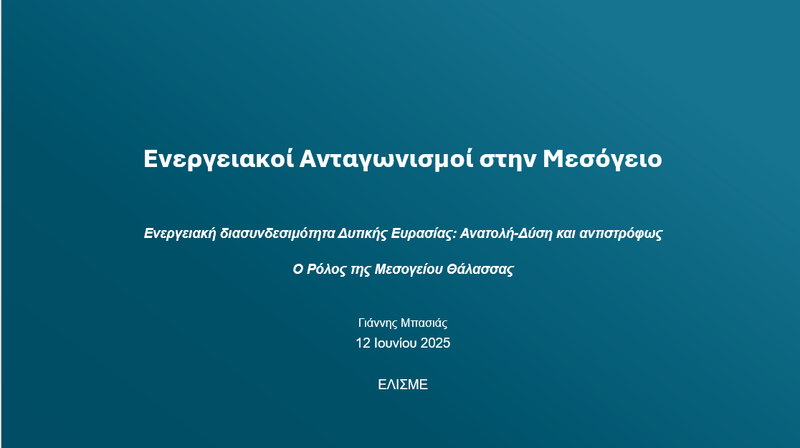Energy Competitions in the Mediterranean

North Africa boasts a more advanced energy and telecommunications transmission network than the IMEC and BRI corridors, positioning it as a strong contender among emerging Eurasian routes. The region is home to numerous existing and planned oil and gas pipelines, along with major telecommunications initiatives being developed in partnership with Europe. Increasing competition between European and U.S. energy firms, particularly in Algeria and Libya, highlights North Africa's growing role as a strategic transit hub for U.S. energy exports to both Europe and Africa. For the European Union, North Africa represents a crucial energy partner in its efforts to reduce reliance on Russian gas. Meanwhile, U.S. companies are deepening their long-term investments across the region, focusing on energy, infrastructure, and technology. These efforts aim to counter Chinese and Russian influence by securing deals around Algeria’s shale gas resources and offshore drilling opportunities in Libya, Algeria, and Morocco, ultimately strengthening U.S. energy exports to Europe beyond 2030.
Greece is an important window into the big puzzle of the Eastern Mediterranean and North Africa, especially in the case of economically proven reserves south and west of Crete and in the Ionian Sea. These regions are opposite Libya and Algeria in the south and Italy in the west. The estimated natural gas reserves from 30 Greek potential targets west, southwest and south of Crete and from the Ionian Sea range between 70 and 90 Tcf, i.e. 1,980-2,550 Bcm or 12 - 15 Bboe. The estimated reserves of crude oil from the Ionian Sea and the land areas of western Greece are estimated at 2 billion barrels. Even 20 percent of a commercial exploitation of 2,550 Bcm could offer a strong correction to the country's trade balance after a decade, also making it possible to export natural gas and correcting the image of energy transit.